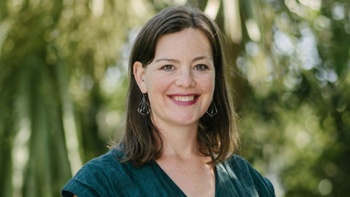The Government is being warned of the country’s vulnerability to more frequent severe weather, and the chances of catastrophic earthquakes that could cripple the country in the near future - even tomorrow.
The stark warning is revealed in a tranche of briefings to the incoming ministers, released today, which are produced by public servants after each change of government or change of minister, and usually set out trouble spots and challenges looming in each portfolio area.
In the briefing to Mark Mitchell, as Minister for Emergency Management and Recovery, officials were frank about the range of hazards that the country faces, and the increasing frequency of such hazards.
“Severe weather events, exacerbated by climate change, are the new normal. Our latest science tells us a catastrophic event such as an Alpine Fault earthquake or Hikurangi subduction zone earthquake and tsunami will very likely happen - if not in our lifetimes, then in those of our children. It could happen tomorrow,” the briefing said.
A devastating earthquake could see tens of thousands of deaths and hundreds of billions of dollars in damages, it said.
It also warns of the gaps in workforce capability, which could lead to an inability to recover from even a moderate or small-scale event.
“There is growing pressure and demand on the emergency management system’s ability to respond to, and recover from, emergencies, especially as the scale and frequency of emergency events increases.”
The briefing noted a 2018 analysis that ranked New Zealand second highest in the world for financial exposure to natural hazards.
/cloudfront-ap-southeast-2.images.arcpublishing.com/nzme/YK6LJWQJPRBGBNPJVPLFGLLZYM.jpg)
Emergency Management and Recovery Minister Mark Mitchell. Photo / Mark Mitchell
Days per year where a state of emergency was declared rose from zero in 2014 to 31 in 2019 to 90 last year. All of those days in 2023 were due to severe weather or flooding.
Regarding earthquakes, the briefing said there was a 25 per cent change of “a major Hikurangi Subduction Zone earthquake event occurring in the next 50 years.
“Indicative national impacts of a major Hikurangi earthquake and tsunami include tens of thousands of people dead, injured or displaced from their homes, and significant damage to the built environment (in excess of $144 billion).”
The Hikurangi zone, located off the east coast of the North Island, is “potentially the largest source of earthquake and tsunami hazard in New Zealand”, according to GNS, which is doing a five-year research project on the zone.
/cloudfront-ap-southeast-2.images.arcpublishing.com/nzme/F7Y7FQ7XB5ERHPEJMUSR7X732M.png)
Screenshot of GNS model of an 8.9 magnitude Hikurangi earthquake. Source: GNS
In the South Island, the earthquake risk centres on the Alpine Fault, which runs 600km along the spine of Aotearoa’s South Island and is considered one of the world’s major geological features.
GNS says the fault is moving horizontally about 30m every 1000 years, “which is considered very fast by global standards.
“Each time it has ruptured, it has also moved vertically, lifting the Southern Alps in the process. In the last 12 million years the Southern Alps have been uplifted by an amazing 20 kilometres, and it is only the fast pace of erosion that has kept their highest point below 4000 metres.”
The fault has ruptured four times in the past 900 years, each time producing an earthquake of about magnitude 8. The last time is thought to have happened around the year 1717.
The briefing pointed to recent research that indicated a 75 per cent chance of an Alpine Fault earthquake in the next 50 years, and an 80 per cent chance that it will be at least a magnitude eight earthquake.
“Such an event will cause widespread damage, disruption, and devastation across the South Island,” the briefing said.
“Electricity supply to the North Island may also be affected. Tens of thousands of visitors and residents are likely to be isolated in Queenstown Lakes, parts of Central Otago, the West Coast and Fiordland. Associated hazards are likely to include landslides, landslide-created tsunami, landslide dams and exacerbated river flooding.”
/cloudfront-ap-southeast-2.images.arcpublishing.com/nzme/VOUDCKREQJHRVKFXLM2VYMWINE.jpg)
The Alpine Fault lies along the South Island's mountain spine. Source: GNS
The briefing also noted the impact of climate change and the increasing frequency of floods, slips, droughts, heatwaves and wildfires.
It said emergency management systems need improvement.
“The recent North Island severe weather events stretched the emergency management system. While devastating to the communities involved, Cyclone Gabrielle can be considered as a moderate-scale event when compared to what New Zealand could experience.”
Recommendations will be made from the inquiry into the response to the North Island weather events, expected in March. But in general, the briefing said a major issue was growing and sustaining workforce capability. Regional variability means that central government agencies “will not have sufficient staff available to operate a response to a catastrophic event. In some cases, there may not be the capacity to fully respond to and recover from a moderate or even small-scale event.”
More education would also better prepare the public for natural disasters, as would better information and interconnectivity of emergency management systems.
“Only a shared approach between central and local government, the wider public, and support from our international partners will help us deal with these events - a collective approach to a collective problem.”
Derek Cheng is a senior journalist who started at the Herald in 2004. He has worked several stints in the press gallery and is a former deputy political editor.
Take your Radio, Podcasts and Music with you









